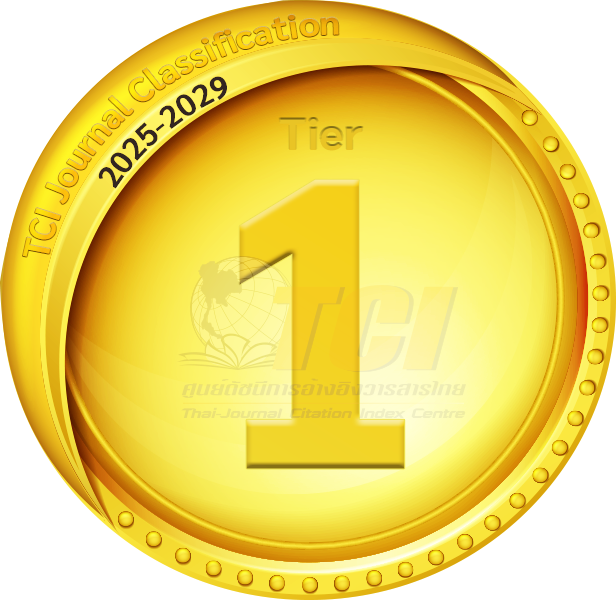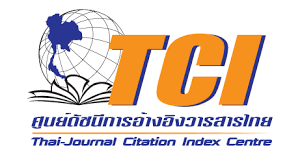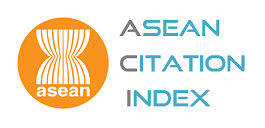Tacit Knowledge Affects the Environmental Practice of Populations in Bangkok Metropolis and Vicinity
- Nicharnan Patitas, Graduate School of Environmental Development Administration, National Institute of Development Administration, Bangkok 10240, Thailand, Corresponding author, Email: nichanan.pati@stu.nida.ac.th
- Wisakha Phoochinda, Graduate School of Environmental Development Administration, National Institute of Development Administration, Bangkok 10240, Thailand
Abstract
Bangkok Metropolis and the surrounding area were ranked the 5th worst in the world for the air quality index in 2023. These environmental problems stem from the lack of basic knowledge of the population’s environmental management skills. This research analyzed the Tacit Environmental Knowledge factors affecting the Environmental Management Practice of Populations. This quantitative research study used a questionnaire to collect data from 410 respondents living in the Bangkok Metropolis and the surrounding area. Results showed the highest tacit knowledge of environmental management in The Skills for Saving Water Resources, with an average score x̄ of 0.94. The second was The Conservation of The Environment is a Public Responsibility, with an average score x̄ of 0.89. The lowest tacit knowledge of environmental management was The Contrast Between "Ozone" and "Clean Air", with an average score x̄ of 0.10. The highest practice in environmental management was the Repair Practice, with an average score x̄ of 1.85. The second was Using Energy-Efficient Products Behavior, with an average score x̄ of 1.67, and the lowest practice level was Taking Public Transportation Instead of a Personal Car Behavior, with an average score x̄ of 0.38. Results also showed that the factors affecting Environmental Management Practice by Correlation Analysis including Education, Environmental Learning Pathway, and Tacit Environmental Knowledge positively related to the Environmental Management Practice of Populations, with statistical significance at α = 0.01.
Keywords: Tacit Knowledge, Environmental Practice, Environmental Management, Practice of Populations
DOI: 10.14456/jcsh.2024.6
References
Auernhammer, J., & Hall, H. (2014). Organizational culture in knowledge creation, creativity and innovation: Towards the Freiraum model. Journal of Information Science, 40(2), 154-166. https://doi.org/10.1177/0165551513508356
Boiral, O. (2002). Tacit knowledge and environmental management. Long Range Planning, 35(3), 291-317. https://doi.org/10.1016/S0024-6301(02)00047-X
Conor, M. T., C., James, M., & Chris, C. (2020). Conceptualizing trust as a mediator of pro-Tacit Environmental Knowledge transfer in small and medium sized tourism enterprises. Journal of Sustainable Tourism, 31(4), 1014-1031. https://doi.org/10.1080/09669582.2021.1942479
De Groot, J. I., & Steg, L. (2009). Mean or green: which values can promote stable pro‐environmental behavior?. Conservation Letters, 2(2), 61-66. https://doi.org/10.1111/j.1755-263X.2009.00048.x
Department of Environmental Quality Promotion. (2015). How People Make Decisions for the Environment. Bangkok, Thailand: S. Paiboon Printing
Department of Provincial Administration. (2022). Official statistics registration systems. Retrieved from https://stat.bora.dopa.go.th/stat/statnew/statMONTH/statmonth/#/view
Food and Agriculture Organization of the United Nations (FAO). (2021). Food Loss and Food Waste. Food and Agriculture Organization of the United Nations. Retrieved from http://www.fao.org/food-loss-and-food-waste/flw-data).
Germanwatch. (2021). Global Climate Risk Index 2021. Retrieved from https://www.germanwatch.org/sites/default/files/Global%20Climate%20Risk%20Index%202021_2.pdf
IQAir Air. (2023). 2022 World Air Quality Report. Retrieved from https://www.iqair.com/world-air-quality-report
Meteorological Department of Thailand. (2021). Climate variability and change 2021. Retrieved from http://climate.tmd.go.th/content/file/2475
Mongkolkasem, S. (1996). News exposure behavior, knowledge, attitude, and safety belt behavior of motorists (Master's thesis). Chulalongkorn University, Bangkok, Thailand
National Science and Technology Development Agency. (2010). Explicit Knowledge and Tacit Knowledge. Retrieved from https://www.nstda.or.th/home/knowledge_post/explicit-tacit-knowledge/
National Statistical Office. (2022). The hidden population in Thailand 2022 Results Summary. Forecasting Statistics Division National Statistical Office: Bangkok.
Pollution Control Department. (2019). Thailand Pollution Situation Report 2019. Retrieved from https://www.pcd.go.th/wp-content/uploads/2020/09/pcd-new-2020-09-03_08- 10-17_397681.pdf
Pollution Control Department. (2020). Thailand State of Pollution Report 2020. Bangkok: Style Creative House Co., Ltd., 2020. Retrieved from https://www.pcd.go.th/ebook/book1/
Pollution Control Department. (2022). Solid waste community disposal sites situation in Thailand 2022 Report. Retrieved from https://www.pcd.go.th/wp-content/uploads/2023/04/pcdnew-2023-04-11_03-13-24_292638.pdf
Satavethin, P. (1997). Principles of Communication Arts (2nd ed.). Bangkok, Thailand: Department of Public Relations Chulalongkorn University
Seub Nakhasathien Foundation. (2023). PM 2.5 in Thailand. Retrieved from https://www.seub.or.th/bloging/knowledge/2023-116/
The Nature Conservancy. (2023). COP28: Your Guide to the 2023 UN Climate Conference. Retrieved from https://www.nature.org/en-us/what-we-do/our-priorities/tackle-climate-change/climate-change-stories/cop-climate-change-conference/
UNESCO. (2023). Global education monitoring report, 2023: technology in education: a tool on whose terms?. Paris, France: United Nations Educational. Retrieved from https://doi.org/10.54676/UZQV8501
United Nations Thailand. (2023). The Sustainable Development Goals in Thailand. Retrieved from https://thailand.un.org/en/sdgs
World Economic Forum. (2022). Global Risks Report 2022. Retrieved from https://www3.weforum.org/docs/WEF_The_Global_Risks_Report_2022.pdf
World Meteorological Organization. (2021). State of Global Climate 2021. Retrieved from https://public.wmo.int/en/media/press-release/state-of-climate-2021-extreme-events-and-major-impacts
Yamane, Taro. (1967). Statistics: An Introductory Analysis, 2nd Ed., New York, US: Harper and Row.
Yao, Z., & Bell, S. (2022). Tacit knowledge in water management: a case study of Sponge City. UCL Open Environment, 4. Article e031. https://doi.org/10.14324/111.444/ucloe.000031

Indexed in


Search